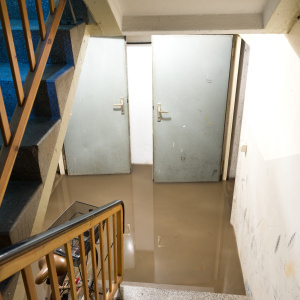 A flooded basement is always a frustrating situation to many homeowners. What you do next is like a call of truce in utterly chaotic times. Does any bit of strategy help? Yes. I firmly believe so.
A flooded basement is always a frustrating situation to many homeowners. What you do next is like a call of truce in utterly chaotic times. Does any bit of strategy help? Yes. I firmly believe so.
I agree that a flooded basement is close to the worst call you can take. You can still live with leaking kitchen sinks and perforated ceilings- but flooded basements, really, who wants that?
Why are basements flooded?
So, keeping in tune with the mantra that humans are about solutions and not problems, let me share with you what needs to be done if and when this nightmare becomes the standing truth of your house. Let us start with what causes the flood in the foundation area.
- It can be the result of frozen water conduits and pipes.
- If your sewer gets overloaded with storm water, it can regurgitate or vomit back the extra load, thus congesting the whole area.
- Roots of trees which grow through the fissures in the waterline can cause blockages.
- Imprudent disposal of items like diapers, polythene, even fats and grease can result in blockages.
- You send a written invitation to blockage and flooding opportunities when you mistakenly connect the sump pump or the drain gutter to the main sewer line.
How to deal with the problem?
If you became a victim of a flooded basement, these are the actions that you can take. Install drain plugs, sewer connections, and backflow valves to ensure that water does not find any entry points to your house. Make sure that proper ‘grading’ effort is made for your entire premise. Try to keep the floor drains unhindered.
If you are out for more than 3 days (and you already know that would be the case), ensure that someone checks on the home in your absence. As a preemptive move, keep hot water heaters, electric furnaces, and panels on masonry, beyond the reach of the water level.
It can happen to you, so keep a smart policy going
Basement flooding is something that we know exists but happens only to “somebody else”. We treat it like, let’s say, being a victim of plane crash — it always happens to other people. And then, one day, clueless as you are, it happens to you. So, it is good to be prepared than to be sorry about the mishap. Apart from double-checking the exclusions and endorsements of your insurance policy, remember to be very discreet with your damage control efforts.
Sick building syndrome
Any place that has seen water for a few days’ time (and is not habituated to water-logging) will develop a breeding ground for moulds, viruses, and bacteria once the water level recedes. Indoor air quality will slacken and sick building syndrome will develop without question. It is your duty to guard against such anomalies, too.
Be cautious with electricity
Before I wrap this up, I cannot overstate the need to be really diligent with electricity. If there are naked wires dangling, keep away from the area and show caution while switching off the main line. The use of rubber pad or wooden piece is highly advised.
Is there a ‘flooded basement’ story you would want to narrate to us?

